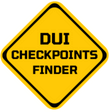Understanding the Differences: DUI, OWI, DWI, OVI
Alcohol- or drug-impaired driving is a dangerous act and is treated as a serious offense in all states across the United States. The terminology used to describe this crime can often be confusing, as various states use different acronyms – DUI, DWI, OWI, and OVI. While they all signify driving under the influence of alcohol or drugs, they each have unique definitions based on the state law. This comprehensive guide aims to demystify these terms and help you understand their implications.
The Acronyms Defined
Before we delve into the differences between DUI, OWI, DWI, and OVI, it’s crucial to understand what these acronyms stand for:
- DUI: Driving Under the Influence
- DWI: Driving While Intoxicated or Driving While Impaired
- OWI: Operating While Intoxicated
- OVI: Operating a Vehicle Impaired
Few Others
- OUI: Operating Under the Influence (used in some states like Massachusetts and Maine)
- DUII: Driving Under the Influence of Intoxicants (used in Oregon)
- DWAI: Driving While Ability Impaired (a lesser offense in some states like New York)
- DUID: Driving Under the Influence of Drugs (used in some states to specifically denote drug-impaired driving)
- BUI: Boating Under the Influence (pertains to operating a boat while intoxicated)
- FUI: Flying Under the Influence (pertains to operating an aircraft while intoxicated)
DUI: Driving Under the Influence
Definition and Explanation
Driving Under the Influence, or DUI, is the most commonly used term nationwide. It implies that a person is operating a motor vehicle while their ability to do so is impaired by alcohol, illicit drugs, prescription medications, or a combination of these.
Where It’s Used
DUI is the term used in most states, including California, Florida, and Illinois.
Key Points
- A DUI charge typically requires evidence of impairment, such as erratic driving, failed field sobriety tests, or observable signs of intoxication.
- Blood alcohol concentration (BAC) tests can also be used to establish impairment. In most states, a BAC of 0.08% or higher is considered illegal.
- DUI offenses can lead to penalties like license suspension, fines, community service, probation, or even jail time.
Example: California DUI Law
In California, a person is considered to be driving under the influence if they have a BAC of 0.08% or more, or if they are impaired by any amount of alcohol or drugs. This state has an “implied consent” law, which means that by driving a vehicle, you agree to submit to chemical testing if law enforcement suspects you of DUI.
DWI: Driving While Intoxicated or Impaired
Definition and Explanation
The term Driving While Intoxicated (DWI) is often used interchangeably with DUI. However, in some states, DWI has a more specific meaning. It typically refers to driving while impaired by alcohol to a degree that exceeds the state’s legal limit, often indicated by a BAC of 0.08% or higher.
Where It’s Used
DWI is commonly used in states like New York, Texas, and North Carolina.
Key Points
- In some states, DWI can be reduced to a DUI charge if the driver’s BAC was below the legal limit, or if there is a lack of evidence of impairment.
- Penalties for DWI are often similar to those for DUI and can escalate with repeated offenses.
- Some states differentiate between DWI and DUI based on the type of substance causing impairment. For instance, in Texas, DUI is used for minors who have any detectable amount of alcohol in their systems, while DWI is used for adults with a BAC of 0.08% or higher.
Example: New York DWI Law
In New York, a person can be charged with DWI if they have a BAC of 0.08% or more, or if they are impaired to any extent by alcohol. However, New York also has a lesser offense called Driving While Ability Impaired (DWAI), which applies if a person has a BAC between 0.05% and 0.07%, or if they show other evidence of impairment.
OWI: Operating While Intoxicated
Definition and Explanation
Operating While Intoxicated (OWI) is another term used to describe impaired driving. The use of the term “operating” instead of “driving” indicates that the person can be charged even if the vehicle is not moving, as long as they are in control of it.
Where It’s Used
OWI is used in states such as Iowa, Michigan, and Wisconsin.
Key Points
- OWI offenses can encompass more than just driving a car. They can include operating other types of vehicles, like boats or snowmobiles, while intoxicated.
- The penalties for an OWI are similar to those for a DUI or DWI and will vary based on the state’s specific laws and the individual’s prior offenses.
Example: Wisconsin OWI Law
In Wisconsin, a person can be charged with OWI if they are operating a vehicle while under the influence of alcohol or drugs such that their ability to operate the vehicle is impaired. Wisconsin also has an absolute sobriety law for drivers under 21, meaning any detectable amount of alcohol in their system constitutes an OWI offense.
OVI: Operating a Vehicle Impaired
Definition and Explanation
Operating a Vehicle Impaired (OVI) is essentially equivalent to DUI but is the preferred terminology in certain states. The distinction again lies in the term “operating,” allowing for a person to be charged even if they’re not actively driving the vehicle.
Where It’s Used
OVI is primarily used in Ohio.
Key Points
- An OVI charge can arise from the use of alcohol, drugs, or a combination of both.
- Penalties for an OVI can include license suspension, fines, mandatory alcohol education programs, use of ignition interlock devices, and incarceration.
Example: Ohio OVI Law
In Ohio, a person can be charged with OVI if they are operating any vehicle and are under the influence of alcohol, drugs, or both. As with the other states, Ohio law considers a person to be impaired if their BAC is 0.08% or higher, or if their ability to operate the vehicle is impaired.
DUI, OWI, DWI, OVI Term Used by States
The term Driving Under the Influence (DUI) is the standard nomenclature utilized by a majority of states to address the serious offense of drunk driving. Yet, a handful of states employ the term Driving While Intoxicated (DWI), such as Alaska, Arkansas, Connecticut, Louisiana, Missouri, Nebraska, New Jersey, New Mexico, New York, Texas, and West Virginia.
Iowa and Indiana use Operating While Intoxicated (OWI), while Rhode Island and Massachusetts employ the term Operating Under the Influence (OUI), although Massachusetts also uses DUI.
Ohio uses the term Operating a Vehicle Impaired (OVI), and in Oregon, the offense is referred to as Driving Under the Influence of Intoxicants (DUII).
Conclusion
Understanding the differences between DUI, DWI, OWI, and OVI can be complex due to the variance in state laws. Nonetheless, it’s crucial to remember that all of these charges indicate serious offenses that carry hefty penalties and societal consequences. The common thread through all of them is the danger imposed on oneself and others when operating a vehicle under the influence of alcohol or drugs. To avoid these charges and the associated penalties, always make sure to designate a sober driver or use alternative transportation if you plan on consuming alcohol or drugs.
Remember, the information provided in this article should not be used as legal advice. If you are charged with a DUI, DWI, OWI, or OVI, it is recommended to seek the services of a qualified attorney who is familiar with the specific laws in your state.
FAQs
- What does DUI stand for?
DUI stands for Driving Under the Influence. This usually refers to driving under the influence of alcohol or drugs.
- What does OWI stand for?
OWI stands for Operating While Intoxicated or Operating While Impaired. Some states use this term to refer to the act of operating a vehicle under the influence of alcohol or drugs.
- What does DWI stand for?
DWI stands for Driving While Intoxicated or Driving While Impaired. This is another term for driving under the influence of alcohol or drugs.
- What does OVI stand for?
OVI stands for Operating a Vehicle Impaired. This is the term used in Ohio to refer to driving under the influence of alcohol or drugs.
- What is the difference between DUI and DWI?
The difference between DUI and DWI largely depends on the state you’re in. In some states, they may be used interchangeably, while in others, they might denote different levels of impairment or types of substances used.
- What is the difference between DUI and OWI?
This depends on the state. The main difference often lies in the term “operating” versus “driving”. OWI can sometimes encompass a broader range of vehicles and circumstances, including being in control of a vehicle while intoxicated even if it’s not moving.
- What is the difference between DUI and OVI?
OVI is the specific term used in Ohio for driving under the influence of alcohol or drugs. While DUI is more commonly used nationally, they both refer to the same act but the specific legal definitions and consequences may vary.
- Is one charge more serious than the other (DUI vs. DWI vs. OWI vs. OVI)?
The severity of the charge can depend on many factors including state law, the driver’s blood alcohol content, whether drugs are involved, and whether there was an accident or injury. In some states, the terms may denote different levels of severity.
- What is the legal blood alcohol content limit for these offenses?
Most states have a legal blood alcohol content limit of 0.08% for these offenses, but the limit is lower for commercial drivers and drivers under 21.
- What are the penalties for DUI/DWI/OWI/OVI?
Penalties can include fines, jail time, license suspension, probation, community service, mandatory alcohol education classes, and installation of an ignition interlock device. The specific penalties vary by state and the circumstances of the offense.
- Can a DUI/DWI/OWI/OVI charge be dismissed or reduced?
This depends on the circumstances of the case and the state. In some cases, a skilled attorney may be able to get the charges dismissed or reduced.
- Can you refuse a breathalyzer test if stopped for suspected DUI/DWI/OWI/OVI?
In most states, refusal to submit to a breathalyzer test can result in automatic penalties due to “implied consent” laws, including license suspension.
- How does a DUI/DWI/OWI/OVI conviction affect your driving record?
These convictions usually stay on your driving record for a certain number of years, depending on the state. This can lead to increased insurance rates and could affect your ability to get certain jobs.
- Can a DUI/DWI/OWI/OVI conviction affect employment opportunities?
Yes, these convictions can potentially affect employment opportunities, particularly jobs that involve driving or that require a clean criminal record.
- Can you travel internationally with a DUI/DWI/OWI/OVI on your record?
This can depend on the country. Some countries, like Canada, can deny entry to individuals with these convictions on their records.





